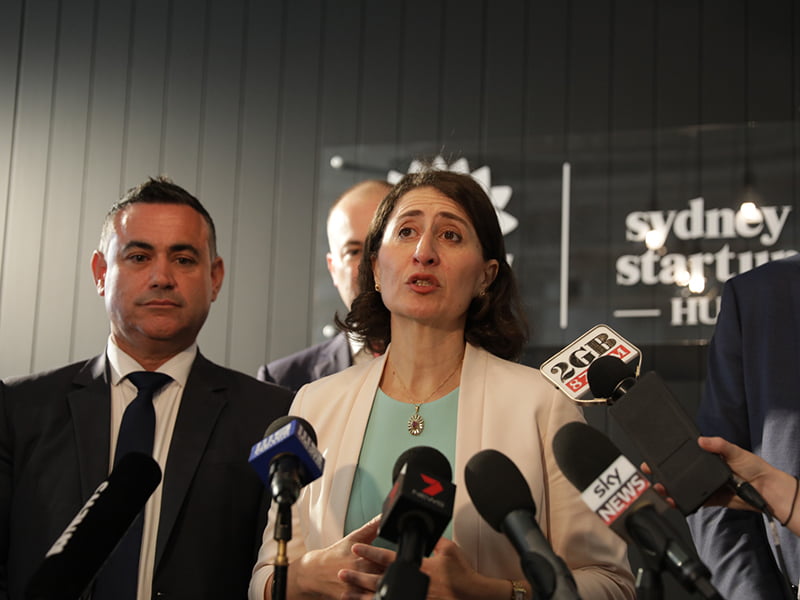The clock is ticking for the NSW government if it wants to get some good electoral vibes out of the ambitious TechCentral proposal to turn a chunk of land inside Sydney’s Central Station perimeter into a mega innovation precinct.
The proposal, which is being shepherded by local tech advocacy group TechSydney, is with the NSW Government and awaiting a yea, nay or maybe.
The idea behind TechCentral is to build a precinct that would house industry players ranging from startups to very large businesses as well as government and university people in a melting pot that would hopefully see some serious new innovation muscle take shape.

TechCentral, if it goes ahead, will be a much, much larger project than the $35 million that the NSW Government dropped on Sydney Startup Hub (SSH), which spreads across 17,000 sqm and 11 floors in York St near Wynyard station and provides 2500 startup desk spaces.
The TechCentral facility would be 10 times larger than the SSH and would need an estimated capital injection of somewhere between $350 million and $500 million. The dough would come from a mix of NSW Government and industry sources and likely some Federal help as well.
“We need to have an overarching strategy that co-ordinates between the four pillars of the industry and collectively have a strategy that we are going to be a globally competitive city, says TechSydney non-executive director Bede Moore.
“I don’t think we have that level of co-ordination or strategy yet,” says Mr Moore who believes the bedrock for such a strategy would be the TechCentral facility.
“I think one of the largest bullet points is to take into account the success of the SSH and to build upon it by building a larger facility that is focussed on innovation.”
TechSydney has been lobbying for the TechCentral project since July 2017 and wants to plant the buildings for the project on a parcel of land around Central Station that the NSW Department of Transport is looking to offload.
“That seems like a really great place to do it,” says Mr Moore. “I think one of the important things if we pick a site is inclusion and Central is inclusive – you can get there from the regions, you can get there from western Sydney, you can get there from any part of Sydney,” he says.
With a NSW election due in March 2019, the TechCentral project could give the Berejiklian Government a nice, hi-tech jobs and growth story to sell to voters.
TechSydney has also been trying to whip up support for the project with the NSW tech industry, which would need to come to the funding party.
“We want industry-led innovation facilities to be built, and this (the Central Station land parcel) is the ideal place to put it,” says Mr Moore.
“To get to the point where we have a world leading innovation hub we need collaboration between all the components of the ecosystem, we need an overarching government strategy that incorporates a major innovation facility as part of it and we need to work on ensuring industry is behind and involved in the planning and delivery of that.”
The NSW Government has yet to respond to the TechCentral proposal.
Mr Moore’s advocacy for the TechCentral project comes as Australia gets an innovation grading from the latest Global Startup Ecosystem Report from Startup Genome, which seeks to track the startup ecosystems of more than 30 countries with data flowing from one million companies and 100 ecosystems.
Australia makes it onto to Startup Genome radar in some important areas and misses out in others.
The report offers a watchlist of country ecosystems in a range of high value sectors.
The bad news is that Australia does not figure in the list of blockchain ecosystems to watch although Singapore and, of course, China do.
Neither does Australia figure in advanced manufacturing and robotics
Even more worryingly, Australia does not make the cut in AgTech ecosystems to watch although New Zealand does.
The good news is that Australia does appear in the list of FinTech ecosystems, as well as health and life sciences ecosystems, along with New Zealand and that Sydney and Melbourne make it onto AdTech ecosystem to watch – which is a tribute to our mad men and women.
We rank well for connectedness with Sydney in the top ten world cities on this measure.
On a global, geo-tech level the report points out that China has transcended its time as an innovation follower and is now punching hard against the US in original brainpower.
“China is a primary growth driver in the global startup revolution,” the report says.
“In 2014, only 14 per cent of current unicorns were from China. In 2017 and 2018 so far, that number has grown to 35 per cent—while for the US it has gone down from 61 per cent to 41 per cent.”
The report says China is rapidly increasing its knowledge production, as measured by patents in AI and blockchain.
While the US still has more startup activity in these sectors by VC capital, China has overtaken the US in patent applications. It has four times as many AI-related patents and three times as many blockchain and crypto-related patents as of 2017.
Do you know more? Contact James Riley via Email.

